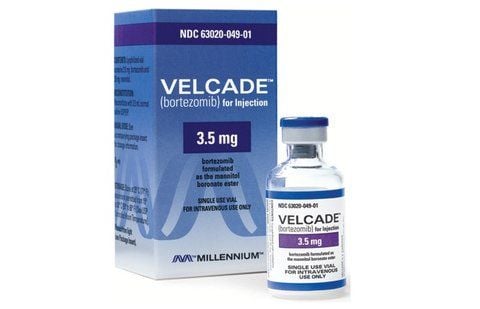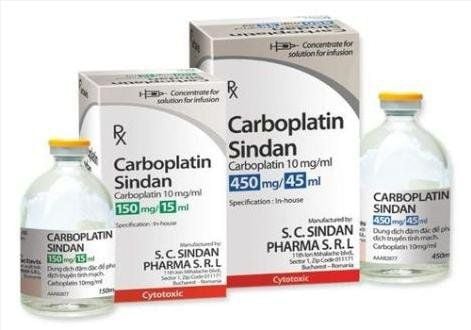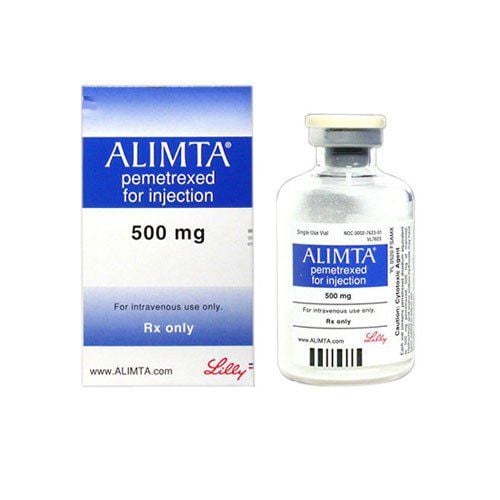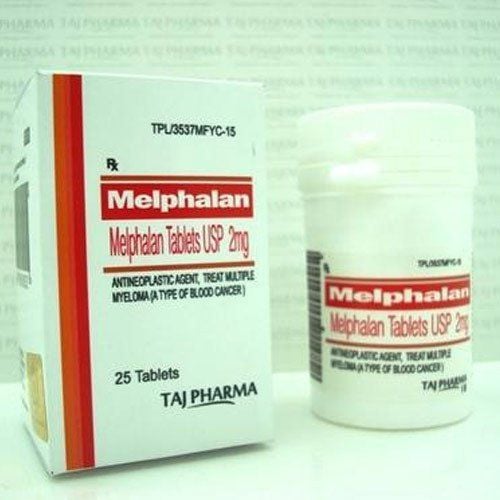This is an automatically translated article.
Lipodox is a type of chemotherapy that is used to treat certain types of cancer such as ovarian cancer, multiple myeloma, AIDS-related Kaposi sarcoma,... Lipodox works by slowing or stopping the growth of of cancer cells.1. What are the effects of Lipodox?
Lipodox drug generic name doxorubicin is an anthracycline type of chemotherapy drug used to treat certain types of cancer such as ovarian cancer, AIDS related Kaposi sarcoma, multiple myeloma,... Lipodox works by ways to slow or stop the growth of cancer cells.2. How to use Lipodox?
Lipodox is given by injection into a vein over 30-60 minutes or longer. The dosage of Lipodox will be based on your medical condition, body size, and response to therapy. Tell your doctor right away if redness, pain, or swelling occurs at the injection site.If this medication touches your skin, immediately and completely wash your skin with soap and water. If this medicine gets into eyes, open eyelids and rinse with plenty of water for 15 minutes and get medical help. Family members and caregivers should take precautions (eg, wear gloves) to prevent contact with the patient's urine or other body fluids for at least 5 days after treatment.
Use Lipodox regularly to get the most benefit from it. Never increase the dose or abuse the drug for longer than prescribed. This not only makes the condition improve faster, but also increases the risk of unwanted effects.
3. Undesirable effects when using Lipodox medicine
Some unwanted effects that may occur when using Lipodox include:Body aches Headache Nausea, vomiting Constipation Diarrhea Stomach pain Loss of appetite Red urine, tears and sweat . This is a normal effect of the drug and should not be confused with blood in the urine. Temporary hair loss, normal hair growth will return a few months after treatment ends.
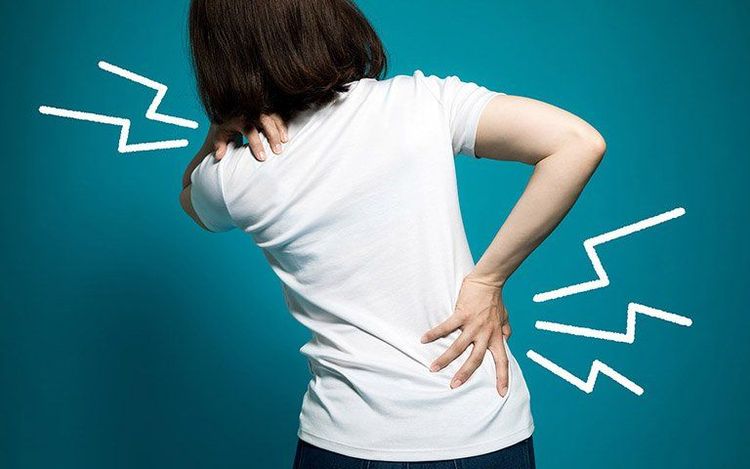
Đau nhức người là tác dụng có thể gặp của thuốc Lipodox
4. Some notes when using Lipodox medicine
Some notes when using Lipodox include:Report a history of allergy to Lipodox, doxorubicin or drugs containing polyethylene glycol, lincomycin, or any other allergies. Lipodox medicinal products may contain inactive ingredients and may cause side effects or other serious problems. Report medical history such as: low blood cell counts (such as anemia, leukopenia, thrombocytopenia), gout, heart problems, history of taking any anthracycline medicines (eg doxorubicin , idarubicin, mitoxantrone, daunorubicin), infections, liver problems, radiation treatment (especially in the chest area), kidney problems, etc. To reduce nausea, vomiting, you should not eat before infusion. Changes in diet and lifestyle also need to be changed such as eating small meals, limiting activity, etc. In some cases, nausea and vomiting symptoms become severe, treatment with Medicines may be needed to prevent or reduce nausea and vomiting. To reduce symptoms of hand-foot syndrome, it is important to avoid prolonged exposure to the sun, tanning booths, and lights, as well as unnecessary heat exposure (eg, hot dish soap, water baths) long hot). Avoid pressure on elbows, knees, and soles of feet (eg, leaning on elbows, kneeling, long walks). Wear loose clothing. Depending on the severity of your hand, foot and mouth syndrome, your doctor may prescribe medication to relieve symptoms, or reduce or delay your next dose of liposomal doxorubicin. When taking lipodox, there may be swelling or pain or sores on the lips, mouth and throat. To reduce this risk, limit hot foods and drinks, brush your teeth carefully, avoid using mouthwashes that contain alcohol, and rinse your mouth often with cool water. Do not get vaccinated without your doctor's approval and avoid contact with people who have just received the oral polio vaccine. To reduce the risk of bleeding, bruising, be careful with sharp objects such as knives, scissors, ... and avoid contact sports, vigorous exercise. Use a brush with soft bristles to reduce the risk of bleeding gums. Wash your hands to prevent the spread of infections.

Hãy luôn giữ vệ sinh, rửa tay sạch sẽ khi dùng thuốc Lipodox
5. Drug interactions
Drug interactions can decrease the effectiveness of Lipodox, or increase the effect of unwanted effects. Tell your doctor about any other medicines you are taking, including prescription and over-the-counter medicines and herbal products. Do not start, stop, or change the dose of any medicine without your doctor's consent.Drug products that may interact with Lipodox include:
Digoxin Progesterone Streptozocin Stavudine Trastuzumab Zidovudine azole antifungals: Ketoconazole Calcium channel blockers: Verapamil, nifedipine Rifamycins: Rifabutin Epilepsy drugs: Carbamazepine, phenytoin, phenobarbital , primidone Products containing turmeric

Các sản phẩm chứa nghệ có thể tương tác với thuốc Lipodox
6. How to store Lipodox?
Store Lipodox at room temperature, away from moisture and light. Do not store Lipodox in a humid place or in the freezer. Each medicine will have different storage methods, so read the instructions on the packaging for Lipodox carefully, or ask your pharmacist. Keep Lipodox out of the reach of children and family pets. When medicine is past its expiration date or cannot be used, dispose of it properly. Do not arbitrarily dispose of Lipodox into an environment such as a water pipe or toilet unless requested to do so. Ask your waste disposal company or pharmacist for advice on how to safely dispose of Lipodox to help protect the environment.In short, the drug lipodox is a type of chemotherapy that is used in the treatment of certain types of cancer such as ovarian cancer, multiple myeloma, AIDS-related Kaposi sarcoma,... Lipodox works by slowing or stop the growth of cancer cells. However, Lipodox can cause some unwanted effects and drug interactions, so tell your doctor what medicinal products you are taking to reduce the risk of side effects and increase the effectiveness of your treatment. treatment course.
Please dial HOTLINE for more information or register for an appointment HERE. Download MyVinmec app to make appointments faster and to manage your bookings easily.
Reference source: webmd.com




